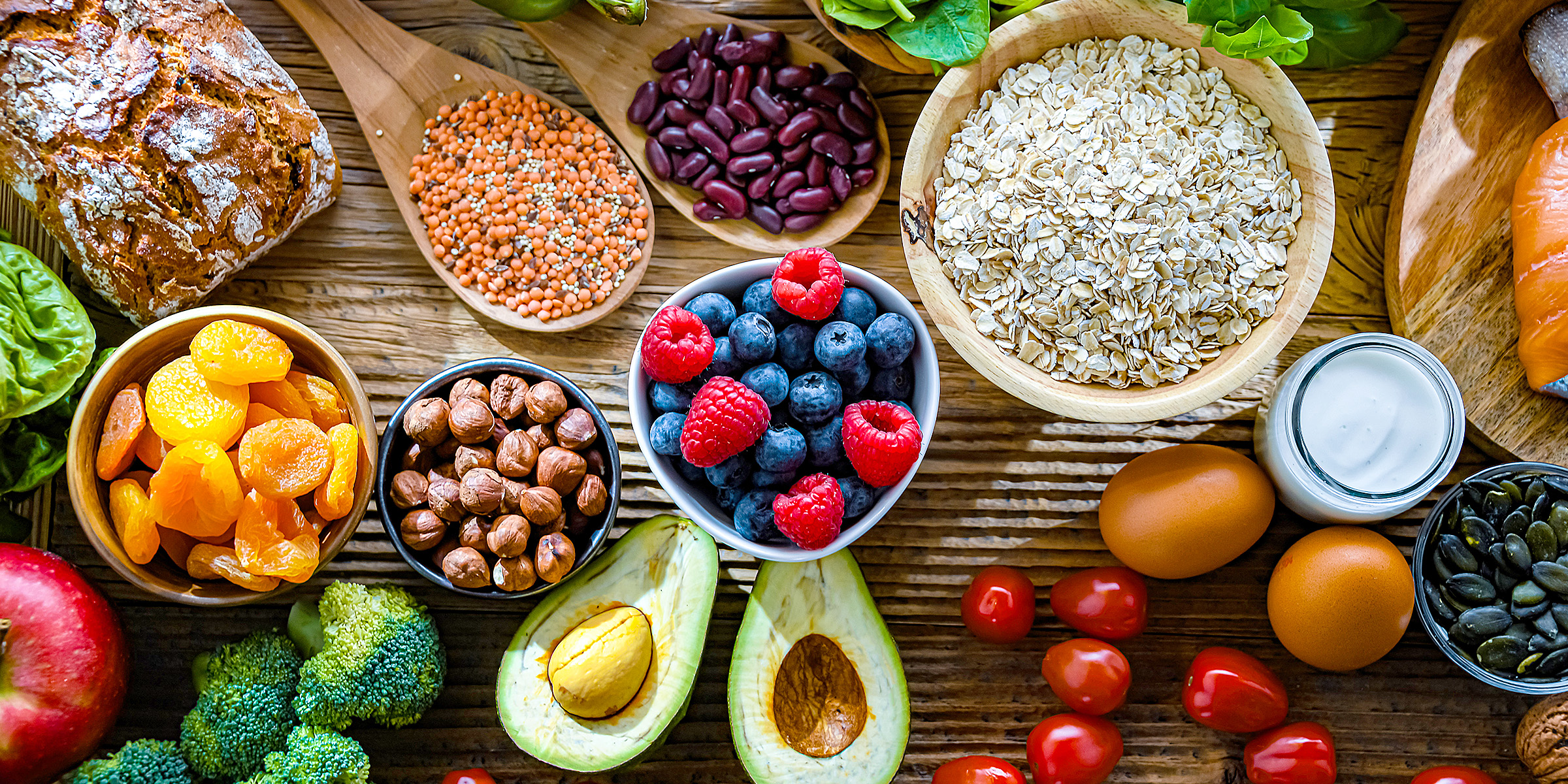
Back to Basics: The Enduring Power of Whole Foods and Natural Health
Eating a healthy and balanced diet has never been more confusing, as the idea has become overly convoluted, no thanks to social media. However, it truly is much simpler than it appears.
As the world becomes more health-conscious, there is a rising consensus that we need to go back to basics — and that means prioritizing whole foods in our diets. Research has long shown that eating nutrient-dense foods is beneficial for our long-term health.
That's why we're often told to avoid or — at the very least — limit our consumption of processed foods. With packed schedules and endless other commitments, that can be tricky. But, it doesn't have to be.

A girl putting freshly harvested vegetables in a basket | Source: Getty Images
What Are Whole Foods?
Whole foods are natural or minimally processed foods that are close to their original state, meaning they retain most of their nutritional value. These include fruits and vegetables, whole grains (such as brown rice, oats, and barley), lean meats like poultry, fish, certain red meats and pork, and legumes.
A whole-foods diet, according to Lisa Young, PhD, RDN, author of "Finally Full, Finally Slim" and adjunct professor at New York University, isn't necessarily formal or commercial. It is designed to be a long-term plan for sustainable, healthy eating.
Caroline Susie, RDN, a spokesperson for the Academy of Nutrition and Dietetics in Dallas, agrees. "The whole-foods diet is not closely defined — there's a big gray area," Dr. Susie explains. "The idea is to consume minimally processed foods as close to their natural state as possible."

A woman preparing a salad | Source: Getty Images
Contrary to whole foods, processed foods undergo deliberate alterations for several reasons, including preservation, flavor enhancement, or convenience. They lose their nutrition because the processing methods employed destroy vitamins, fiber, and other beneficial compounds.
Any time a food is cooked or prepared means it's processed to some degree, even if only mildly. Therefore, there are lightly processed foods, heavily processed foods, and everything in between.

Frozen dinners | Source: Getty Images
The Science of Nourishment: How Whole Foods Impact Your Body
Prioritizing whole foods on your plate offers plenty of benefits for your long-term health. Whole foods:
- Are nutrient-dense: Whole foods boast a variety of nourishing vitamins and minerals that are vital for your well-being, all without the disadvantage of empty calories.
- Are rich in natural fiber: The natural fiber in whole foods helps with digestion, weight management, and heart health.
- Provide antioxidants: Antioxidants protect your cells from damage that may lead to disease.
- Support digestive health: Whole foods feed the beneficial bacteria in your gut, promoting overall good gut health, a stronger immune system and mental well-being.
- Promote satiety: The nutrients and fiber in whole foods help control your appetite and prevent overeating.

A mother and her baby eating corn | Source: Getty Images
Navigating Processed Foods
Although we're taught to avoid processed foods because of the health issues — including diabetes, cardiovascular disease, obesity, and inflammation — associated with consuming them, some are safer than others.
As Dr. Susie says, "I think we need education around the term 'processed foods.' They can be very convenient, especially since we're all so busy. I don't want someone thinking they cannot have 90-second microwaveable brown rice, when it's a nutritional powerhouse."

Homemade granola with cottage cheese, kefir, pomegranate, and honey in bowl | Source: Getty Images
Lightly processed foods like yogurt and cheese are perfectly fine for occasional consumption. That also goes for canned or frozen fruits and vegetables without added sugar or excess sodium, but you want to aim to avoid the highly processed options, such as microwaveable dinners and frozen pizza.
Embracing whole foods is one of the simplest ways to support your overall health. By choosing natural, minimally processed ingredients, you fuel your body with the nutrients it needs, improve digestion, and reduce your risk of chronic disease. Remember to start with small additions and build from there.
The information in this article is not intended or implied to be a substitute for professional medical advice, diagnosis or treatment. All content, including text, and images contained on AmoMama.com, or available through AmoMama.com is for general information purposes only. AmoMama.com does not take responsibility for any action taken as a result of reading this article. Before undertaking any course of treatment please consult with your healthcare provider.
